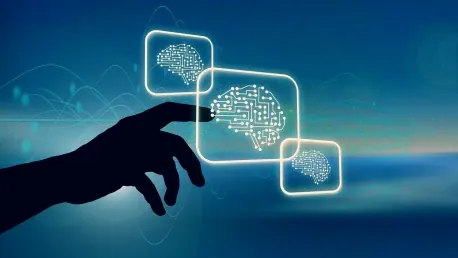Imagine a future where sophisticated AI systems are not just responding to user prompts but autonomously driving entire business operations with minimal human oversight. This is the vision behind the emerging concept of agentic AI, a groundbreaking development poised to revolutionize the workplace. Unlike generative AI platforms such as ChatGPT and Microsoft Copilot, which require specific user prompts to function, agentic AI systems allow users to set overarching business goals and leave the planning and execution to the AI itself. Gartner, a leading research and advisory company, has already identified agentic AI as a top strategic technology trend for 2025, further predicting that by 2028, a significant portion of daily work decisions—at least 15%—will be autonomously conducted via this technology.
Major Investments in Agentic AI
Several tech giants are already investing heavily in agentic AI systems, recognizing their potential to drive efficiency and reduce operational costs. In September 2023, Salesforce unveiled Agentforce, a new service composed of AI agents capable of handling a wide range of tasks from customer service to data analytics. Similarly, Google and Microsoft are developing their own agentic systems. Google’s AI agents are designed to take on complex web-based assignments, while Microsoft’s Magentic-One aims to set a new standard in task automation. Magentic-One utilizes an ‘orchestrator AI’ to coordinate four subordinate AI agents, collectively working to complete multi-step tasks that would otherwise require substantial human intervention. Through these innovations, companies aim to boost productivity and transform how businesses operate on a fundamental level.
Challenges and Uncertainties
Agentic AI holds great promise but presents challenges and uncertainties. A primary concern is whether it will genuinely benefit organizations or just add another layer of automation. Employee reactions could vary widely; some may appreciate offloading mundane tasks to focus on more strategic and creative work, while others might fear for their job security and how workplace dynamics will shift. Agata Mirowska, assistant professor of HR management and organizational behavior at Neoma Business School, warns that companies might be advancing too quickly without fully considering the impact on employees and workplace experiences.
The potential risks and ethical considerations of agentic AI demand a cautious and thoughtful approach to its implementation. Businesses need to ensure their employees benefit as well. Agentic AI holds transformative potential in the business world, backed by significant investments from major tech companies. As these autonomous systems evolve, they could greatly impact work processes and productivity. Organizations must balance technological innovation with understanding its implications for human workers, thus navigating challenges while maximizing agentic AI’s benefits.









